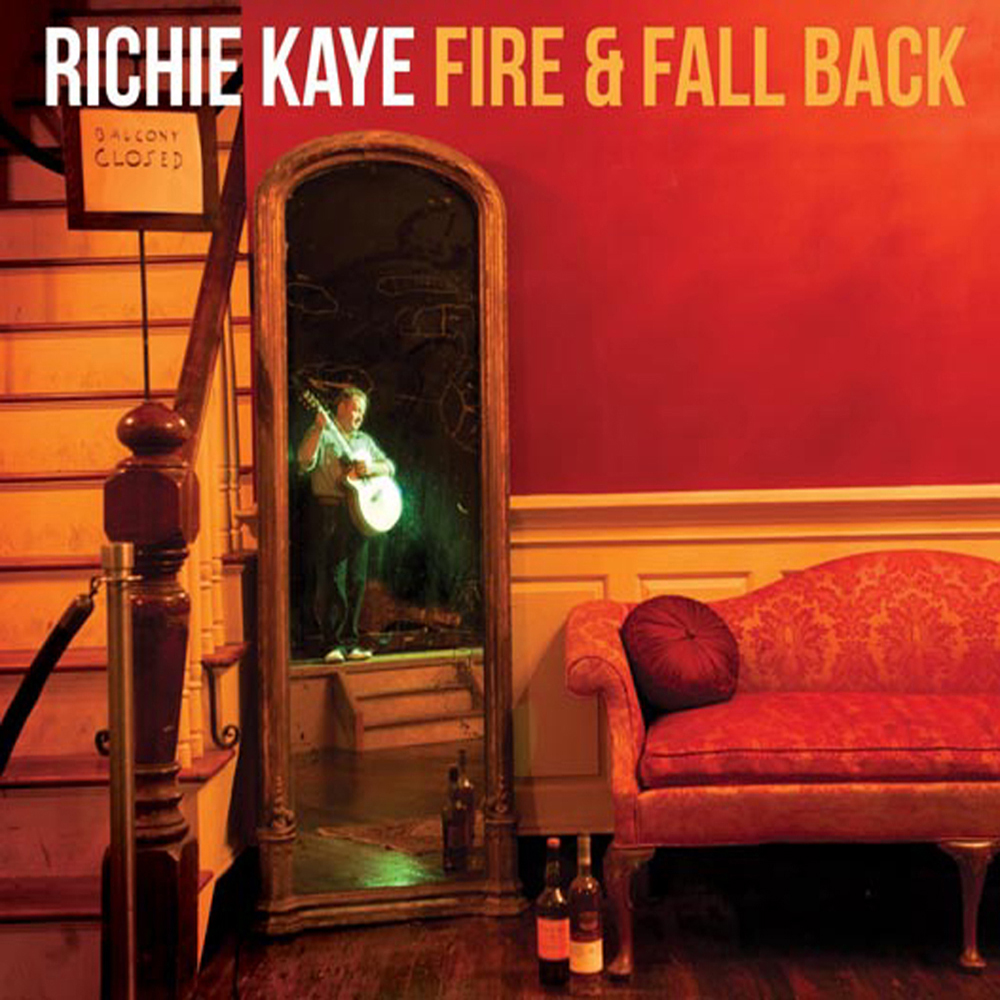
About Fire and Fall Back
“…Daring…an intriguing personal approach…a very cool style in his playing and singing…very clean talented work here…different and personal.” — David Hintz, Folkworld (EU)
The tradition of the troubadour is ancient. Historians tell us it reached its peak of popularity in the late 12th century in the Pais d’Oc, roughly Languedoc in today’s France. In this tradition, a performer sang his lyric poetry aloud. He might sing of his pleasure, of a lover at dawn, of his sense of discord, of his complaints while traveling or a lament over the death of a loved one.
In Fire and Fall Back, Richie Kaye has attempted to follow that tradition, like the Fado Português, but in a clearly modern American sense. In other words, an expression of ideas of great emotional significance to the singer, expressed by means of an eclecticism in word and sound that are highly personal to him. In other words, singing of his Life — honestly and forthrightly — from the well of Soul.
Although born and raised in New Haven, Connecticut, Richie Kaye has led a life rather unlike most Americans of his generation, with much of it involving Chinese and Japanese languages and cultres. Perhaps for that reason, the “troubadour music” he plays is unusual, strongly influenced by Taiwanese pop of the 80s and 90s and Japanese enka, pregnant with hidden meanings, strange twists and maturity. His songs are youthful in spirit, expressing a tragicomic vitality within a strange and subtle harmoniousness.
This music is very different. Richie Kaye doesn’t sound like anyone else. The melodies he has discovered are always singable in and of themselves, but they create eerie harmonies floating over unusual chord changes that still seem somehow familiar. His lyrics convey an exquisite poesy intended to reflect a glimpse at the soulful Intelligence that is greater than Man.
The tradition of the troubadour is ancient, its apogee in quality and quantity, the historians tell us, evidently occuring in the late 12th century in the Pais d’Oc, roughly Languedoc in today’s France. In this tradition, a performer sang his lyric poetry aloud. He might sing of his pleasure, of a lover at dawn, of his sense of discord, of his complaints while traveling or a lament over the death of a loved one.
In Fire and Fall Back, Richie Kaye has attempted to follow that tradition, like the Fado Português, but in a clearly modern American sense. In other words, an expression of ideas of great emotional significance to the singer, expressed by means of an eclecticism in word and sound that are highly personal to him. In other words, singing of his Life — honestly and forthrightly — from the well of Soul.
Although born and raised in New Haven, Connecticut, Richie Kaye has led a life rather unlike most Americans of his generation, with much of it involving Chinese and Japanese languages and cultres. Perhaps for that reason, the “troubadour music” he plays is unusual, strongly influenced by Taiwanese pop of the 80s and 90s and Japanese enka, pregnant with hidden meanings, strange twists and maturity. His songs are youthful in spirit, expressing a tragicomic vitality within a strange and subtle harmoniousness.
This music is very different. Richie Kaye doesn’t sound like anyone else. The melodies he has discovered are always singable in and of themselves, but they create eerie harmonies floating over unusual chord changes that still seem somehow familiar. His lyrics convey an exquisite poesy intended to reflect a glimpse at the soulful Intelligence that is greater than Man.
Fire and Fall Back
Richie Kaye2007
All compositions and master recordings, Copyright © 2007 Richard Kuslan and AudioTheater Services LLC, All Rights Reserved.